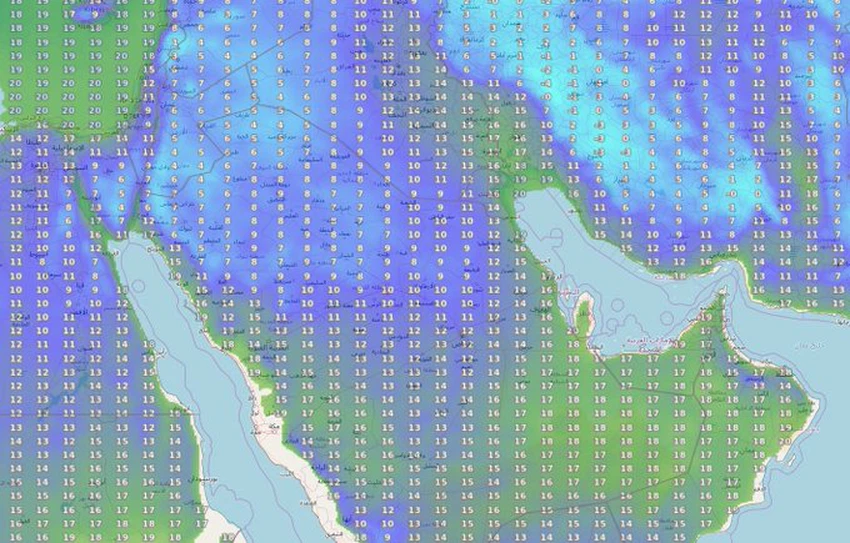Temperatures are approaching zero during the coming days in the northwestern regions of the kingdom and alert of frost formation
2019-12-03
2019-12-03T13:11:59Z
Arab weather expects cold wave on parts of northern region, especially weekend
Temperatures over the next few days are expected to see a gradual drop in temperatures in the north-west regions of the Kingdom, approaching zero degrees Celsius overnight.
Areas covered by low temperatures
Lower temperatures include Jouf, the northern border, Tabuk and parts of Hail as a result of a cold air mass from the Levant and Iraq.
Alert from frost formation
Frosts are likely to form in parts of the north of the kingdom, especially Jouf and west of the northern border, especially over the weekend.

This article was written originally in Arabic and is translated using a 3rd party automated service. ArabiaWeather is not responsible for any grammatical errors whatsoever.
Arabia Weather App
Download the app to receive weather notifications and more..



